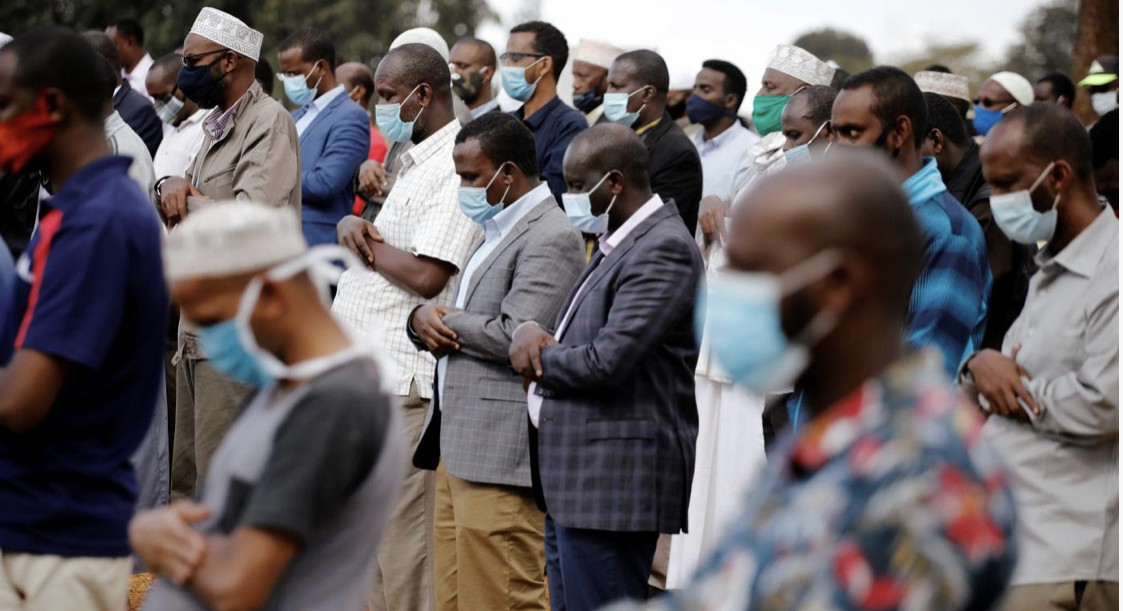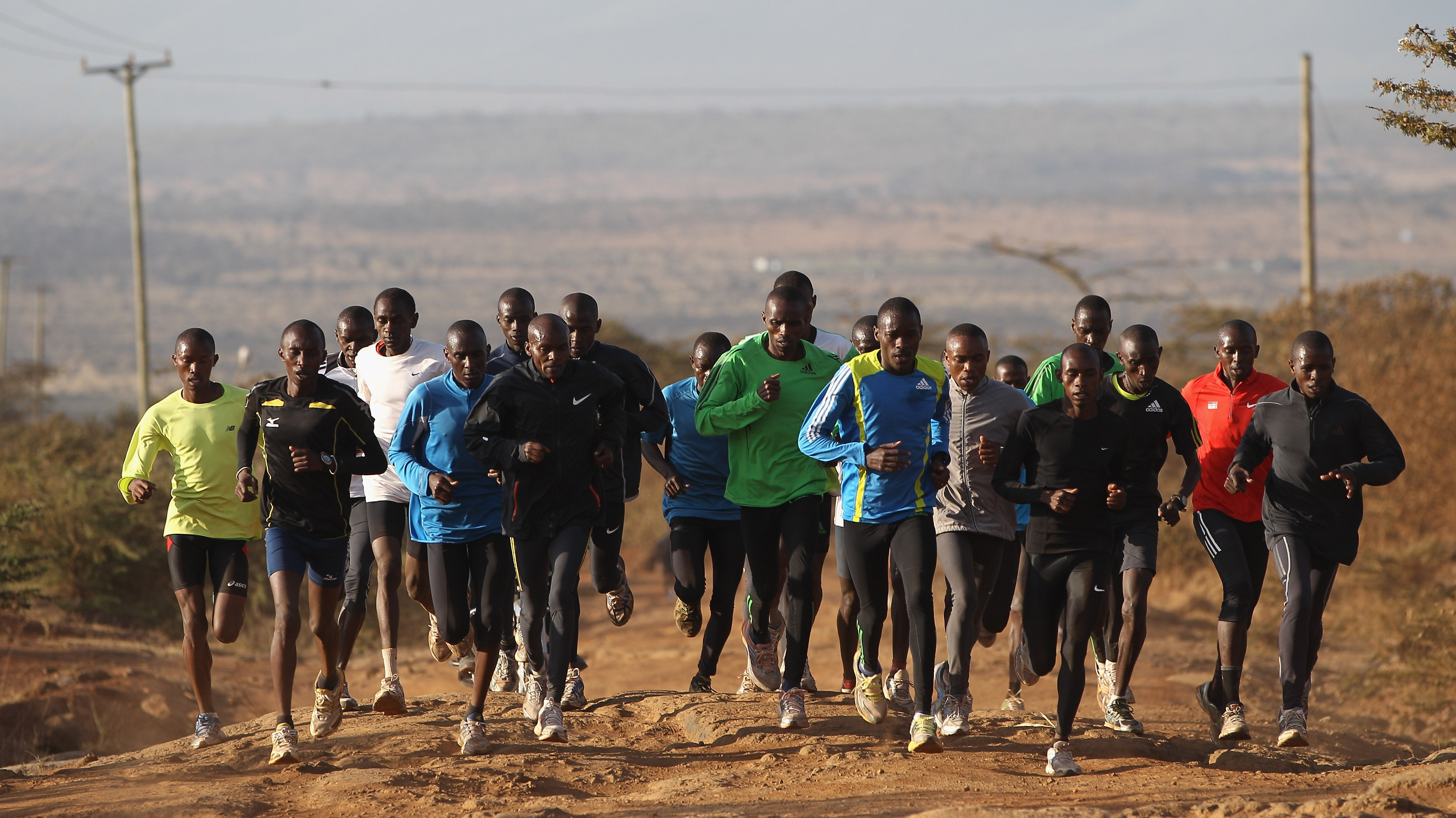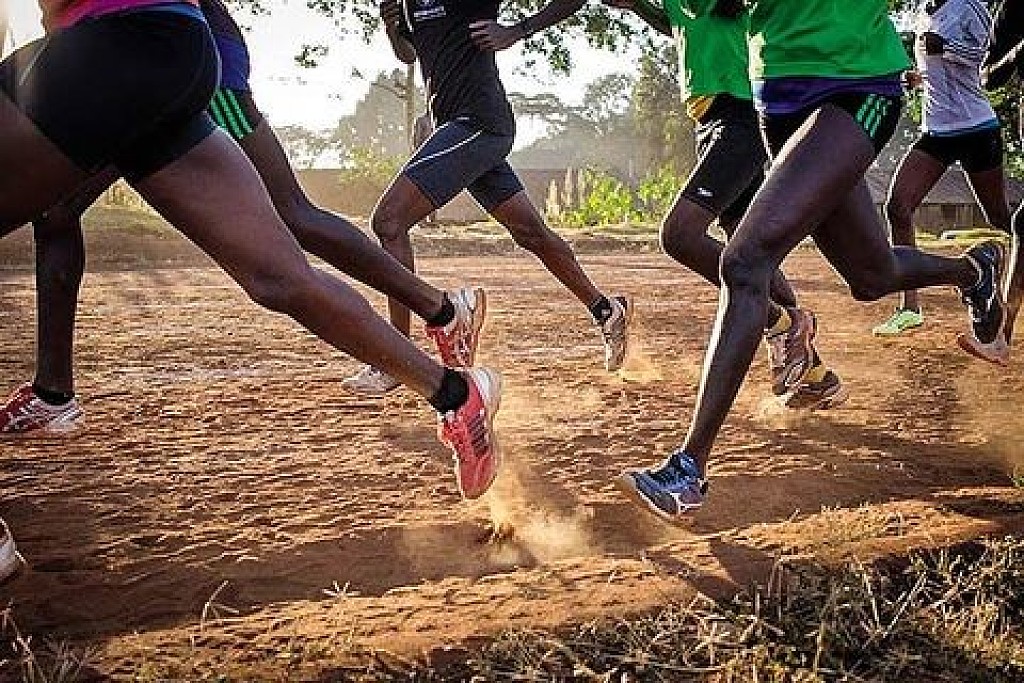Running News Daily
Running News Daily is edited by Bob Anderson. Send your news items to bob@mybestruns.com Advertising opportunities available. Train the Kenyan Way at KATA Kenya and Portugal owned and operated by Bob Anderson. Be sure to catch our movie A Long Run the movie KATA Running Camps and KATA Potato Farms - 31 now open in Kenya! https://kata.ke/
Index to Daily Posts · Sign Up For Updates · Run The World Feed
Kenya has experienced far fewer coronavirus deaths than other countries with similar infection rates and no deaths in last 48 hours
(Many of the top runners in the world are Kenyans. Hundreds of these runners make their living running races, winning prize money and having sponsors. Right now because of COVID-19 many of these athletes are barely surviving. The good news is that few Kenyan runners have gotten COVID-19 and as far as we know no elite runners have died from the virus. Let's look at the overall scene in Kenya as compared to the rest of the world.)
In March, Kenya was bracing for coronavirus. Duncan Nyukuri, an infectious disease physician at Kenyatta National Hospital in Nairobi, was listening to reports coming in from China and Italy with trepidation. “Our healthcare infrastructure is not as good as in those areas,” he said, and even as Kenya implemented strict lockdown policies, it wasn’t clear how the country would cope.

Six months on and, while Kenyans aren’t quite breathing a sigh of relief, many are cautiously optimistic. “It’s better than what I feared initially,” says Nyukuri. The majority of Kenyans who get coronavirus—around 80%, according to health cabinet secretary Mutahi Kagwe—seem to be asymptomatic. And Kenyans seem to be dying of coronavirus at far lower rates than elsewhere in the world.
Officially, 599 people have died of coronavirus in Kenya. The true total is likely higher, as the country’s testing capacities are limited, especially in rural areas. But it’s still a strikingly small proportion of official case counts: less than 2% of the 35,356 I people who have tested positive for coronavirus. This figure is distinct from the mortality rate, since many cases are never diagnosed. But still, Kenya’s numbers stand apart: Coronavirus infected 272,912 people in Italy, according to government figures, and 13% died, creating a death toll of 35,507.
Coronavirus antibody testing in Kenya puts the country’s relatively low number of deaths in even starker context. Immunologists from the KEMRI-Wellcome Trust Research Program in Kilifi, Kenya tested 3,174 people across the country from the end of April to the middle of June, and found that 5.6% tested positive. “We estimate that 1 in 20 adults in Kenya had SARS-CoV-2 antibodies during the study period,” wrote the authors in their paper, which has not yet gone through peer review but was published as a preprint in July. And yet, by midway through the survey, Kenya had only reported 71 deaths from coronavirus—far lower than the number of deaths reported globally in countries with similar levels of antibodies.

If the survey’s results accurately reflect Kenya’s overall infection rate, then 2.5 million Kenyans had coronavirus in that period. According to the World Health Organization’s conservative estimate of a 0.5% morbidity rate, that many infections would have resulted in around 12,500 deaths. Even factoring in the likelihood that official testing hasn’t captured the full impact of coronavirus, Kenyan hospitals simply aren’t reporting the number of patients expected given national antibody levels.
“Our peak is not as overwhelming as we thought it would be,” says Anne Barasa, an immunologist at the University of Nairobi who works at Kenyatta National Hospital. “At my hospital, the majority who test positive are asymptomatic. We’re not overwhelmed by those with severe disease.”
The reason for Kenya’s low death count is unclear. “Coronavirus is a new disease and there’s a lot of unknown. We are still speculating,” says Nyukuri. But Kenyans’ youthfulness is likely a major factor. Half of the population is younger than 20, and only 4% are 60 or older, according to a report from the United Nations University World Institute for Development Economics Research.
So far, coronavirus has predominantly affected cities in Kenya, particularly Nairobi and Mobassa. These areas are filled with particularly young demographics. “Most of our older population are in rural areas, as people tend to go back to rural areas when they retire,” says Nyukuri. Keeping older people apart from their younger relatives and support networks during lockdown created its own problems, including food scarcity, but it could well have protected them from infection.
Other possible theories for Kenya’s low number of deaths, including whether medications and vaccines for other conditions could help prevent severe effects, are still being investigated. HIV, unexpectedly, doesn’t seem to increase the likelihood of severe Covid-19 infections. Barasa says it’s possible that antivirals taken for HIV provide a broadly protective effect. Close to a million people, around 2% of the population, are on antiviral HIV medication.
“There’s talk that BCG [bacille Calmette-Guerin tuberculosis vaccine] and oral polio vaccines could be protective, but India has the same vaccines,” says Barasa. Kenyans could have also boosted their immune systems from exposure to other, less deadly, strains of coronaviruses, though again this theory is unproven. “There’s research being developed, but we don’t have a lot of hard evidence,” says Barasa.
No explanation can be definitively ruled out. Genetics could be a factor, says Barasa, while some speculate that Kenyans’ exposure to sunlight and resulting high vitamin D levels could somehow help. Nyukuri is less certain of this last theory: “In the US and India it’s summer and they still have these cases,” he says. “Unless our sunlight is different.”
As in the rest of the world, Kenya’s epidemic is far from over; Nyukuri says he saw between 20 and 30 coronavirus patients in the past two weeks, and the country’s healthcare system can struggle even if severe symptomatic reactions remain relatively low. Elsewhere in Africa, several other countries report similar low mortality rates to Kenya. Scientists are still unraveling why coronavirus has had a less severe effect on some countries compared to others. When they do determine a cause, the answers could help other countries bolster their defenses.
Login to leave a comment




